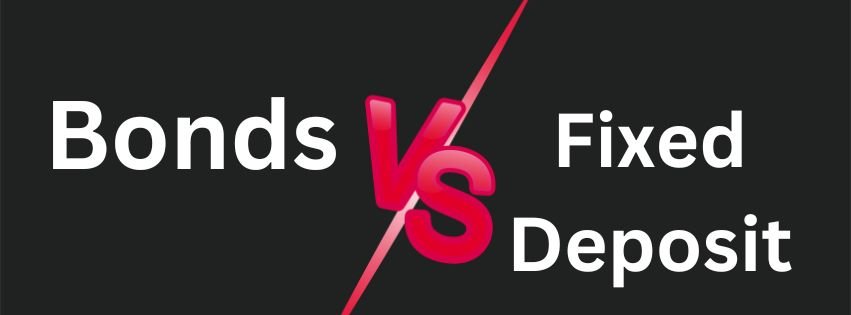Are you thinking whether to invest in fixed deposits or bonds? Let us know which is the better option between bonds and FD.
Investing in any financial instrument is a personal decision. It completely depends on the person’s risk-taking ability. So let us know which is better between bonds vs fixed deposits.
We all know that the profit is proportional to the risk involved in investment. That is why even today many people run away from the stock market because the risk is very high in it. And due to this fear, all those people invest in the bank’s fixed deposit scheme, which gives only 3 to 6 percent return. And there is nothing wrong in this.
But another option is famous among investors and that is bonds. Bonds are a safe investment product. But there are different standards of security too. Which we have mentioned earlier. You can read it on this link. In this blog post, we will do a comprehensive comparison of both the investment options, Fixed Deposit and Bonds.
What is Bond and Fixed Deposit?

Bonds:
Bonds are an investment instrument in which the investor lends money to the company and in return the investor gets attractive interest on his principal amount which the company pays monthly, half-yearly or annually. Bonds are issued by governments, states, municipalities and private companies. Their time period can be from 5 to 7 years.
Fixed Deposit:
Fixed deposit is a financial instrument in which the investor invests his money at a pre-determined interest rate. There are many options for the investment period which is decided by the investor. In this, the principal amount and interest of the investment are payable on completion of the time period of the fixed deposit scheme.
Key Difference
Safety: Bonds are considered more secure because in this, if the company is declared a defaulter, its physical assets are sold and the money of the bond holder is paid. FD is also safe but if the bank defaults, there is no support of physical assets.
Potential of returns:
Bonds are the first choice of all rich people because they give higher returns than the bank’s fixed deposit scheme. Which is usually 7 to 12 percent.
Liquidity:
Bonds are traded on the stock exchange which makes it a more liquid asset. For example, liquidity means that whenever you want to withdraw your money before time, you can sell the bonds in the secondary market. Whereas in FD, there is a penalty or lower interest rate on withdrawing money before the time limit.
Payment options:
Investors do not have options for returns in bonds. It can be half-yearly, yearly or cumulative as decided by the company. Whereas in FD, the investor has many options to receive payment.
Conclusion
The choice of investment in funds and bonds is based on personal financial goals and risk. Fixed deposits give low returns but also have low risk. Whereas bonds have high returns but may have higher risk than FDs. So before investing, keep your financial needs in mind and invest according to your risk taking capacity.
Remember to give importance to diversification in investment. Invest your money in different types of investment products to reduce risk. Diversification has always been a good way to invest.
Disclaimer: This blog post is for informational purposes only and should not be taken as financial advice. Always consult a financial advisor before making any investment decision.

